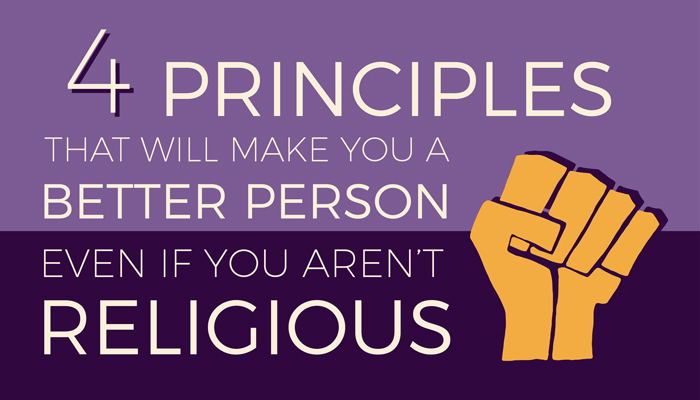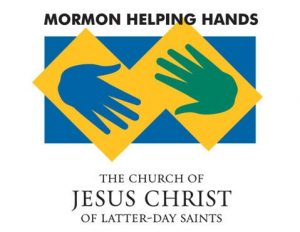
We all know that principles like the Word of Wisdom, chastity and not watching R rated movies can make you a better person even if you aren’t LDS. But what about some lesser known principles that are vital to our faith but can be universal blessings?
Here are four principal beliefs of LDS members that can help make the lives of everyone better, even if you don’t believe in religion.

1) The Call To Serve
LDS members are known for their dedication to their religion.
Besides going to church for three hours each Sunday, they have additional responsibilities, or “callings,” that they spend on each week. These callings include but are not limited to gospel teaching, visiting homes in need, building youth programs to benefit the Church youth and administering to specific families to fulfill whatever needs they may be lacking.
Although in the Church we are called by God to serve others in our community, the principle behind being involved in your community on a very intimate level is one that could benefit all. If we are being purely selfish, here are three reasons why volunteering in your community can benefit you:
- It gives you a sense of purpose.
- Studies prove that volunteering can have an incredibly positive effect on mental and physical health.
- It saves resources that can then go to benefiting local improvements of your interest.
This does not include dozens of selfless benefits that come when people speak up, step out and volunteer. Find what you are passionate about, look for opportunities to serve and find your purpose.

2) Accountability
Members of the Church in these callings aren’t left to their own devices. There are hundreds of meetings where they return and report what they have done and how they did it. This system of accountability makes sure that the Lord’s work is getting done.
I know I could use this kind of accountability system when January comes around. My goals usually fall flat by midnight the following night. I can testify that the reason they constantly fail is that the only one holding me accountable for them is myself, and I’m very sympathetic when I want a cheesecake instead of weightlifting.
Setting up an accountability system with either a loved one or a coach increases success by 65%. If you have a specific timeline for that goal to be achieved with this individual, this bumps up to 95%.
Take some time to think about some personal achievements that you’ve always wanted to accomplish. Write them down, and then call a loved one and ask if they could hold you to that goal. I promise you that you will be pleased with the results.

3) Forgiveness and Repentance
Believe it or not, members of the Church aren’t perfect.
We make mistakes. Huge ones. Gigantic, ground shattering, life crumbling mistakes that can severely affect our loved ones.
The beauty about what we believe in is that we know we can always bounce back from these mistakes. Within the Church, we have built in beliefs that sponsor confessing wrongdoings and unconditional forgiveness. This system was given to us by Heavenly Father to bring peace in our lives.
Whether you believe in an Almighty Being, forgiveness and repentance can heal the wounds of wrongdoing. I could use statistics and hard facts to illustrate this point, but I thought a courageous woman named Eva Kor could do it better.
Eva Kor admits it herself: She isn’t religious. The principle of forgiveness, however, taught her how to reconcile with the horrendous past she had to endure. In her own words, if this principle became universal, it would heal many a broken heart.
4) Giving When It Hurts
As a poor college student, any kind of financial donation is painful.
Yet our tithing doctrine in the Church gives me the opportunity to give, even when it hurts. One of the principles in our Church is that for every paycheck, we are asked to give 10% of all we earn to the Church. If we do this, we are blessed.
There are others who have discovered this principle. One of them is Tony Robbins, an American entrepreneur, philanthropist, author and life coach. His story below is an inspiring example of giving when you can’t possibly give any more, and the benefits that come from it:
Footnote
This article is not suggesting that others outside of our faith do not share these principles. Rather, these are principles that members of The Church of Jesus Christ of Latter-day Saints have been taught since youth and are part of our doctrine.
I’m grateful for the immense knowledge I have learned from a child that has helped me be more successful in life. I promise you that if you will abide by these principles that members of the Church share with successful people, you will find confidence and happiness in your life.





